
About Azerbaijan
The Republic of Azerbaijan is situated at the crossroads of Eastern Europe and West Asia, covering an area of approximately 86,600 square kilometers. Positioned in the South Caucasus region, it is surrounded by the Caspian Sea to the east, Russia (Republic of Dagestan) to the north, Georgia to the northwest, Armenia and Turkey to the west, and Iran to the south. According to 2022 statistics, Azerbaijan has a population of around 10,353,296 million. Baku serves as both the capital and the largest city, with other notable towns including Ganja, Lenkoran, Nakhchivan, Shusha, Sheki, and Minghachevir. While Azerbaijani is the official language, Russian, Turkish, and English are also widely spoken.
Climate
Azerbaijan's climate exhibits significant diversity, featuring examples of nine out of the world's eleven climate zones across different regions of the country. Generally, mountainous areas experience higher precipitation and lower average temperatures compared to the central lowlands and Caspian Sea coast, where the climate is drier and hotter. Summers are hot, particularly in lowland areas, while winters are moderate. In Baku and other eastern and southeastern parts, average temperatures peak at around 27ºC in the hottest months of July and August. Similarly, winter temperatures in Baku average between 3ºC and 4ºC from December to February.
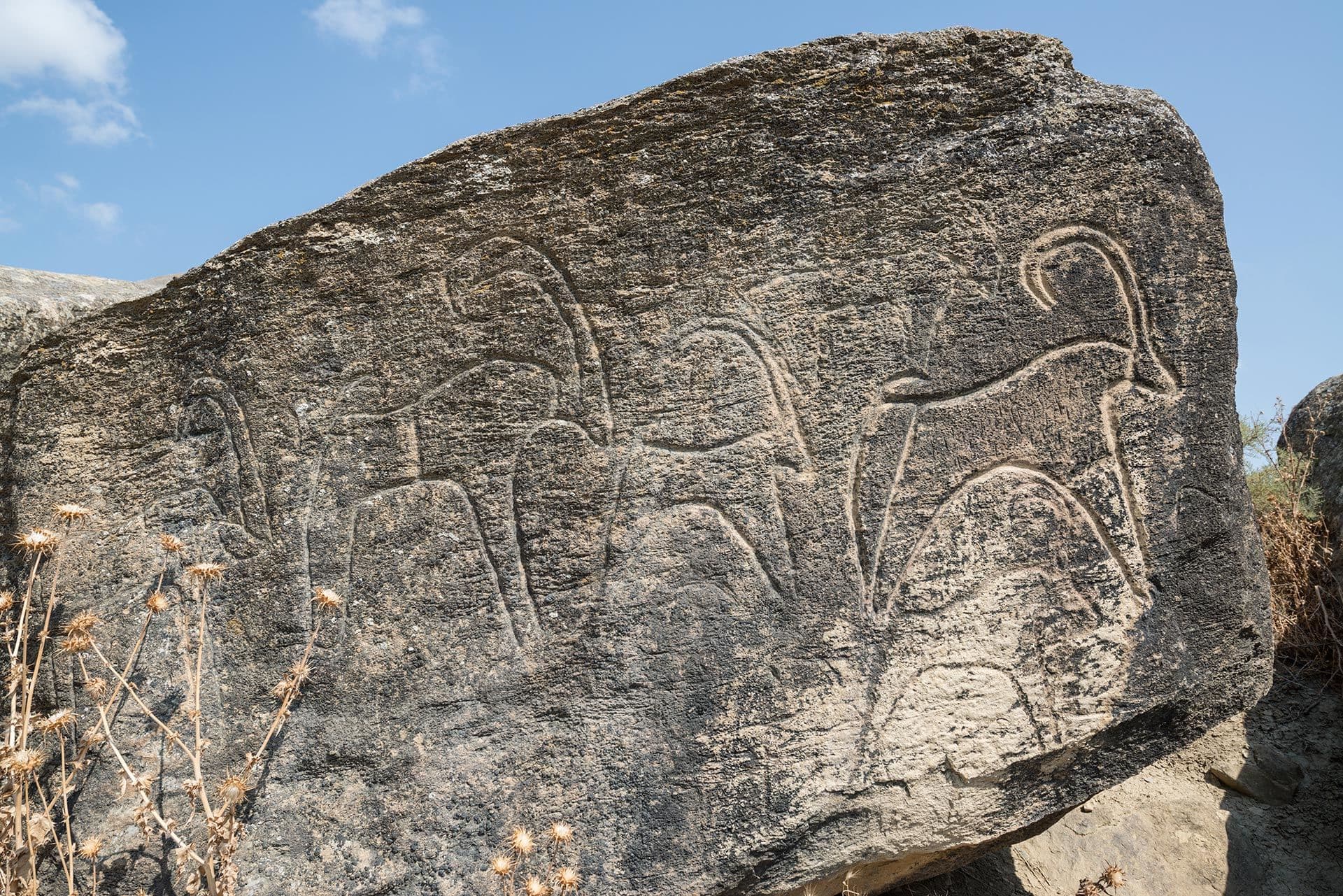
Glimpses of Antiquity
The historical Azerbaijani lands are some of the most ancient cultural sites of modern civilization. Archaeological finds discovered in Azykh, Taghlar, Damjili, Dashsalahli, Gazma caves and in other historical sites, including the lower jaw of the Azyk man - Azykhantrop, who lived 300-400,000 years ago, also prove Azerbaijan to be one of the sites of the formation of ancient human beings. In the late 1st millennium BC-early 1st millennium AD, there were strongly organized states like Manna, Media, Atropatena and Albania in the Azerbaijani territories. In the early years, AD our country experienced one of the hardest periods of its history: it was occupied by Sasanian-Iranian Empire in the 3rd century and by the Arab Caliphate in the 7th century.
A Journey to Baku's Oil Legacy: XIX-XX centuries
“The people of Baku used oil soaked in the ground for heating when there was no firewood” VII century Arab historian Abu-Ishaq-al-Istahri
The first method of steam distillation of oil
In Balakhany, the industrial oil processing plant of Nikolay Voskoboynikov commenced operations. In a groundbreaking moment in 1837, this facility pioneered the world's first method of steam distillation for oil processing, utilizing natural gas for heating.
The first industrial oil well was drilled
1846: At the suggestion of Vasiliy Semyonov, a member of the General Administration of South Caucasus, and under the leadership of major Alekseyev, director of Mining Engineer Corps of Baku oil fields, the world’s first industrial oil well was drilled in “Bibiheybat” village of Baku and oil was extracted from the well at a depth of 21 metres. This happened 13 years before the first oil well was drilled in the United States.
Fridges in oil processing
1863: Following that Javad Malikov, a machinist from Baku, built a kerosene plant, which used fridges in oil processing for the first time in the world.
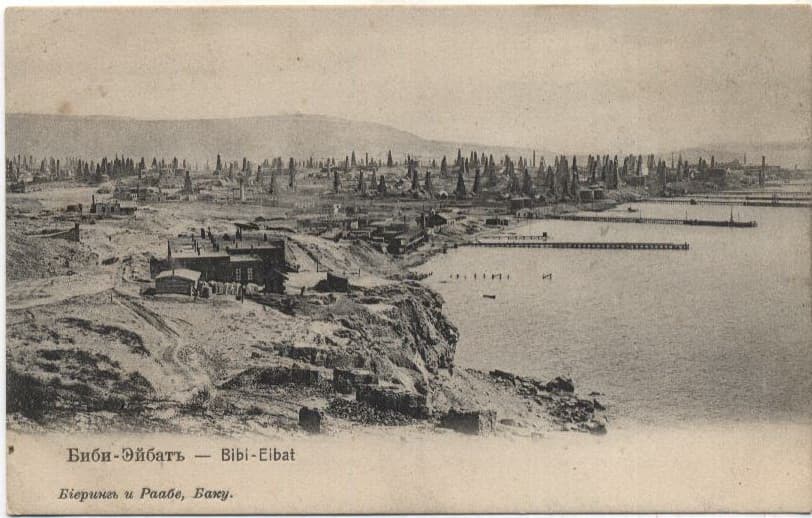
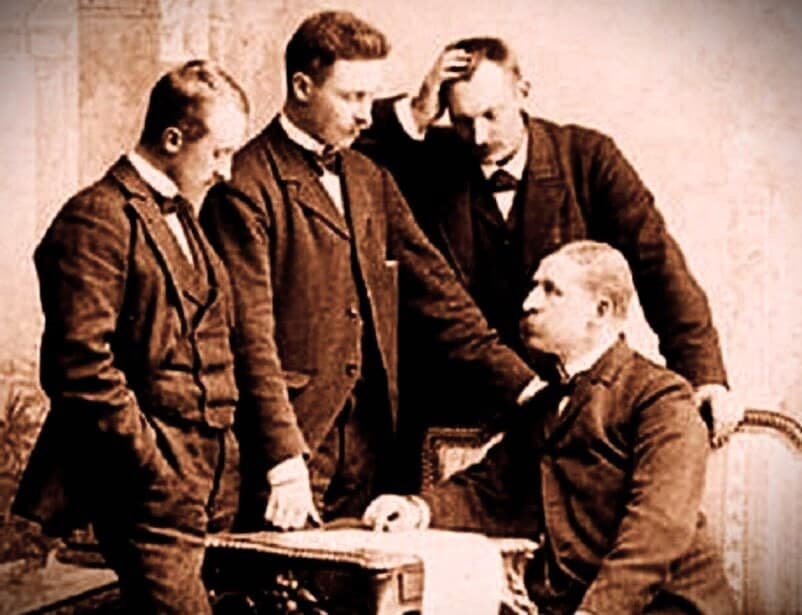
The Nobel brothers in Baku
1875: The Nobel brothers - Robert, Ludvig, Alfred started working in the oil business in Azerbaijan and three later for the first time in the Russian Empire, started the construction of an oil pipeline with a length of 9 km and a diameter of 7.62 sm from the “Balakhany” oil fields to the Black City district of Baku. In 1881 for the first time in the world, the Nobel Brothers Company started transporting oil and oil products in railway tankers.
Azerbaijani philanthropes and oil millionaires
1895: Murtuza Mukhtarov introduced a groundbreaking percussive drilling rig, incorporating metal rods of his own invention, to drill oil wells reaching a depth of 1100 meters. He successfully obtained a patent for this innovation, and subsequently, the machine gained widespread adoption in various drilling operations. 1907: Haji Zeynalabdin Taghiyev and Musa Naghiyev established the Trans-Caucasus pipeline, spanning 1070 meters with a transmission capacity of 800,000 tons. The ceremonial opening of the pipeline was held in Tbilisi (Georgia) on the 24th of July 1907.
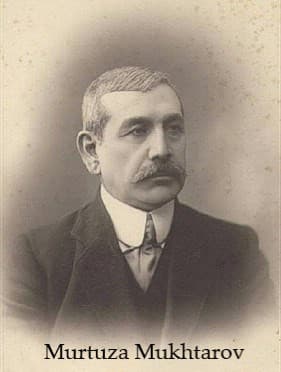
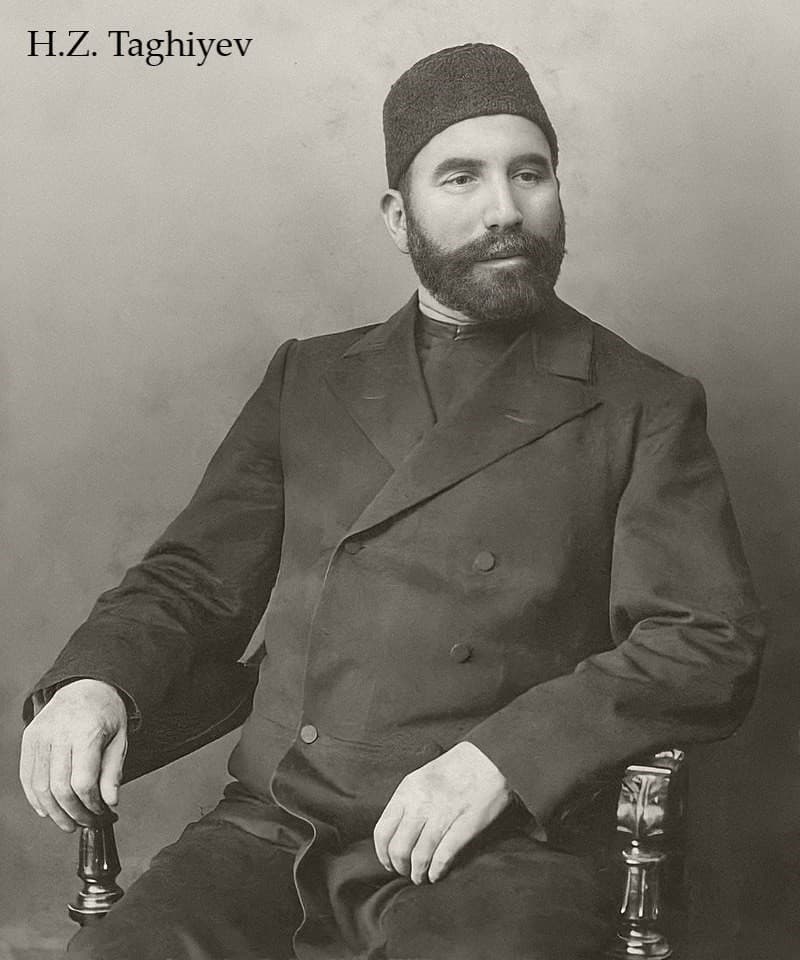
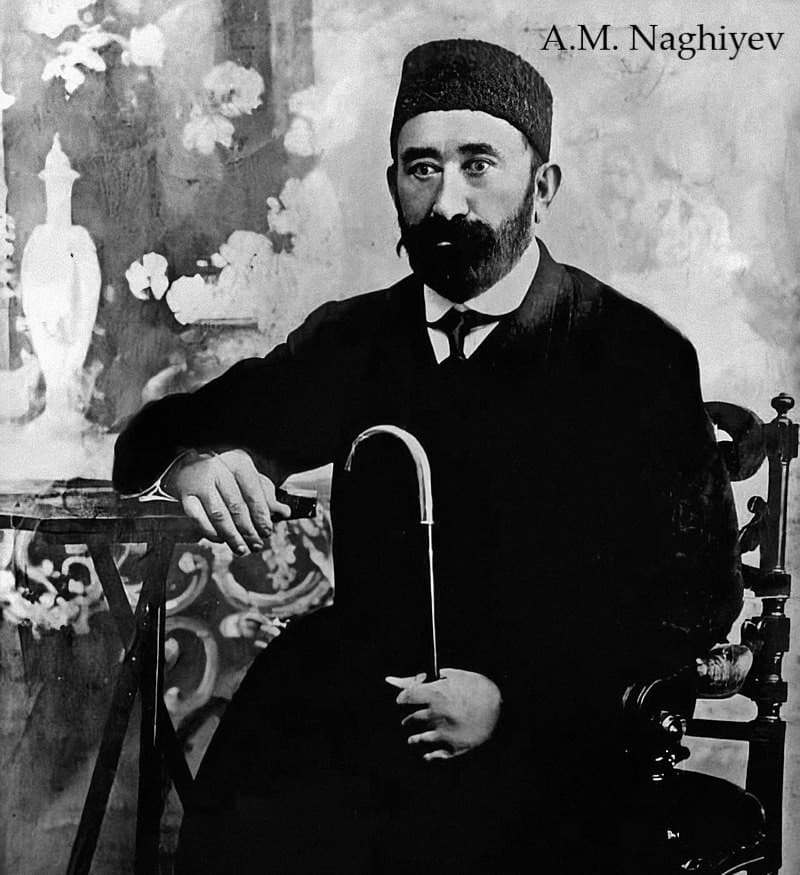
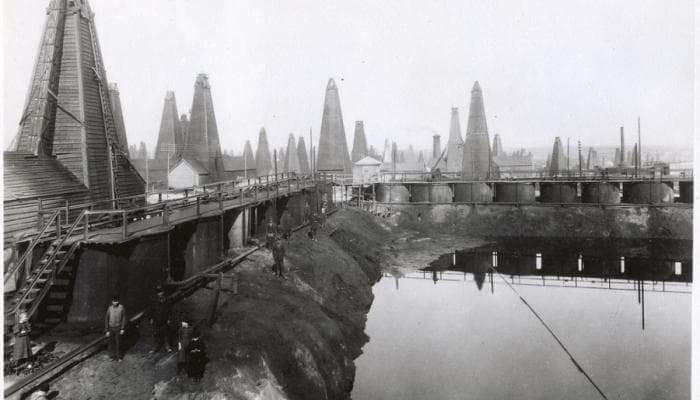
World War II
In the first year of the war, Azerbaijan contributed 23.5 million tons of oil specifically designated for military purposes. Over the course of the Great Patriotic War (1941-1945), a total of 75 million tons of Baku oil was utilized on the front lines, with Baku refineries playing a pivotal role in producing 90% of the military jet fuel needed for the conflict.
Oil Rocks
The Oil Rocks, an offshore oil field was launched in the open sea for the first time in the world. The first offshore oil well (Offshore Well No. 1) was put into operation on the 7th of November 1949, which laid the foundation of offshore oil production.
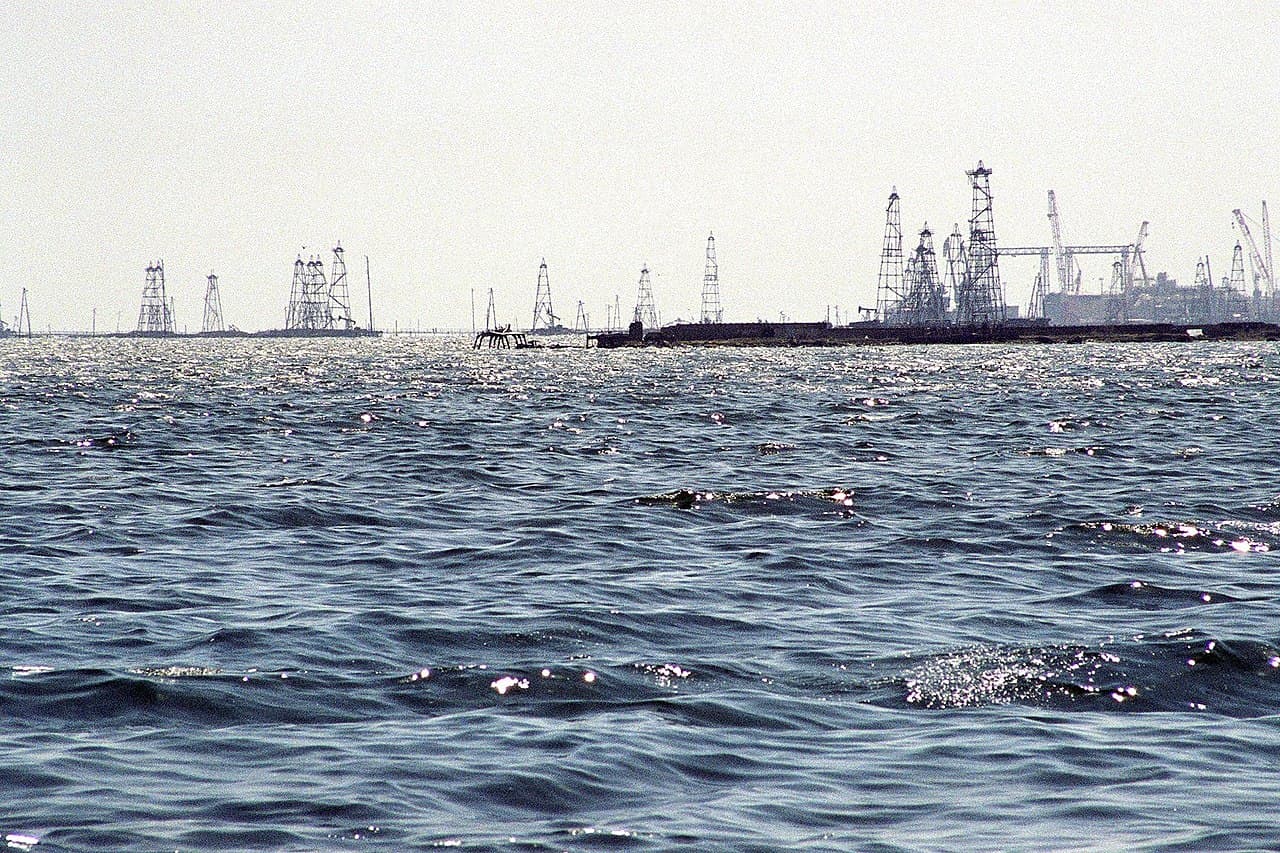
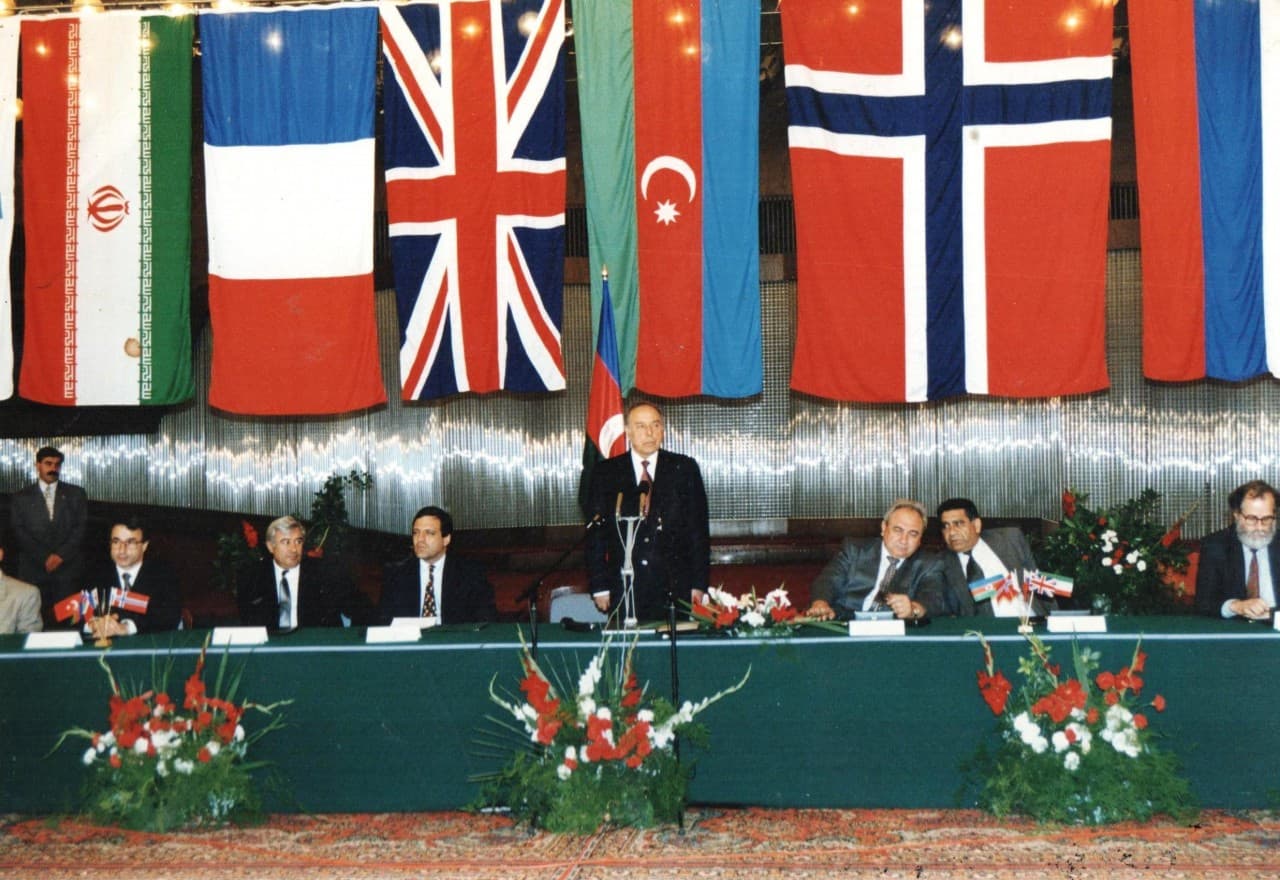
Contract of the Century
Under the leadership of Heydar Aliyev, the Agreement on Joint Development and Production Sharing for the Azeri, Chirag fields and the Deep Water Portion of the Gunashli field in the Azerbaijani sector of the Caspian Sea was signed on September 20, 1994. Eleven international oil companies (AMOCO, BP, McDermott, UNOCAL, SOCAR, Lukoil, Statoil, TPAO, Pennzoil, Ramco, Delta) representing seven countries (Azerbaijan, USA, UK, Russia, Turkey, Norway and Saudi Arabia) joined the “Contract of the Century”.
Modern Azerbaijan
Independent Azerbaijan is currently undergoing a pivotal moment in its economic, social, political, and cultural evolution. Purposeful reforms in the country during this transition have led to the fortification and modernization of the national economy. Over the last 17 years, the economy has experienced significant growth, expanding more than threefold through dynamic development. A robust socio-economic infrastructure has been established, contributing to a notable reduction in poverty amidst positive demographic changes. Azerbaijan's economic strength has enabled the initiation of substantial projects with the potential to reshape the economies of the South Caucasus and neighboring regions, establishing the country as a highly dependable partner in global energy security.
The sovereign nation of Azerbaijan is embarking on a strategic phase that is distinctly different in the post-pandemic and post-conflict era, extending from 2021 to 2030.
Azerbaijan 2030: National Priorities of Socio-Economic Development
- A steadily growing, competitive economy
- A dynamic, inclusive society based on social justice
- Areas of modern innovations and competitive human capital
- The great return to the territories liberated from occupation
- A clean environment and country of “green growth”
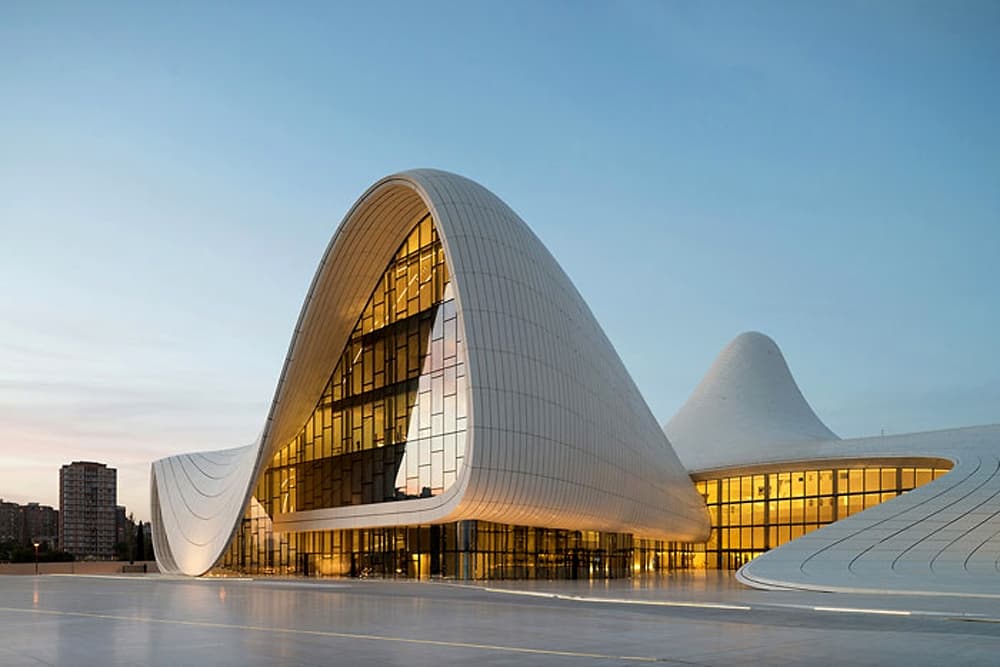
A dynamic, inclusive society based on social justice
Sustainable and high economic growth must serve the formation of a dynamic and inclusive society, and every citizen must feel this development in his or her life. People's access to economic opportunities must be equal and fair, regardless of their social status and place of residence. This priority can be successfully implemented based on the following three goals:
- benefits to every citizen from development
- greater and fairer social security within an inclusive society
- balanced development of both the capital and regions
References and Useful Links:
- Azerbaijan. (n.d.). General information about the history of Azerbaijan. Click to View
- President of The Republic of Azerbaijan Ilham Aliyev. (02 February 2021, 14:10). Order of the President of the Republic of Azerbaijan on approval of “Azerbaijan 2030: National Priorities for Socio-Economic Development. Click to View
- President of The Republic of Azerbaijan Ilham Aliyev. (n.d.). History. Click to View
- President of The Republic of Azerbaijan Ilham Aliyev. (n.d.). Oil Sector. Click to View
- SOCAR. (n.d.). Oil history of Azerbaijan, Click to View